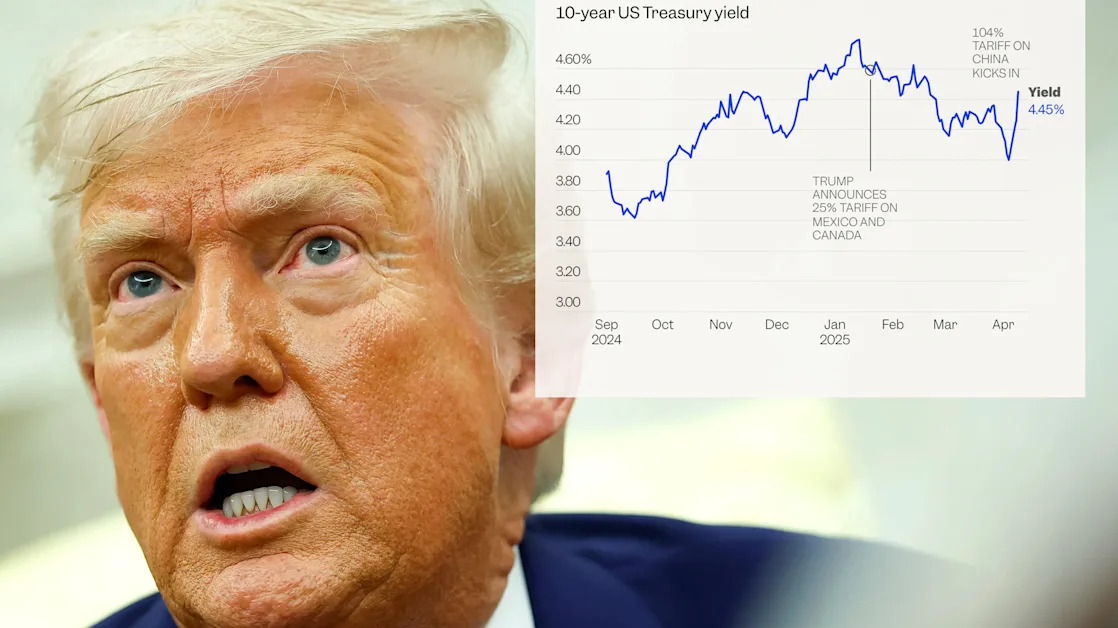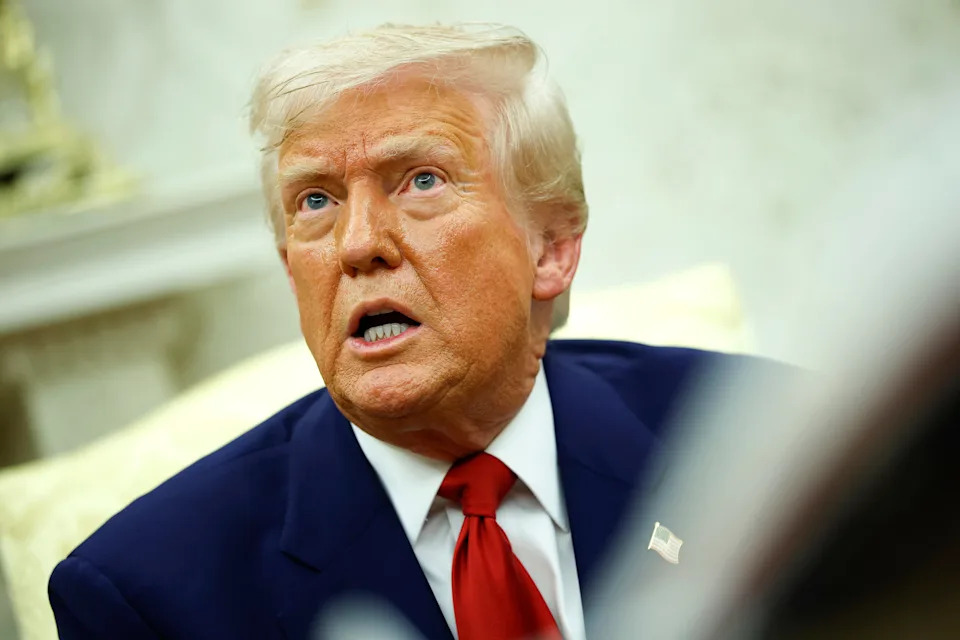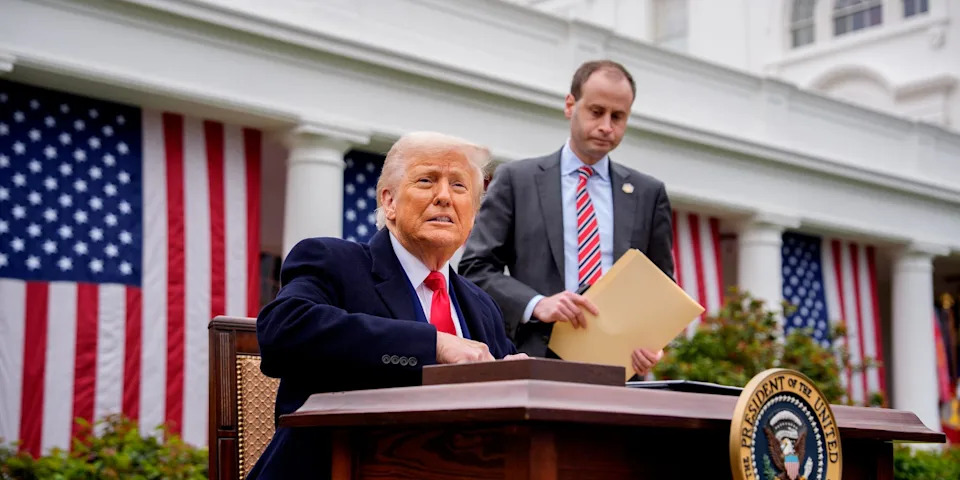
The bond market still isn't playing ball with Trump after tariff reprieve

Trump paused the trade war for 90 days on Wednesday, but bond yields are still not moving in the direction the administration wants.
Bond yields spiked early Wednesday and remained elevated even after Trump called a time-out on most reciprocal tariffs while leaving the baseline 10% rate in place. The 10-year Treasury yield was still up 13 basis points at around 4.4%, not far from a peak of 4.45% touched earlier in the day.
The move in yields has been the opposite of what Trump has said he's looking for: lowering borrowing costs for Americans.
"We cut the spending, we cut the size of government, we get more efficiency in government, and we're going to go into a good interest rate cycle," Treasury Secretary Scott Bessent said in February, saying the administration's actions were why yields were falling at that time.
But investors aren't playing ball now as Trump's trade war accelerates. They're selling US bonds even as recession concerns spike and stocks sell off for a fifth day on Wednesday.
Investors sold off US Treasurys as new tariffs on China kicked in on Wednesday, lifting the overall tariff rate on Chinese goods to 104%. Later in the afternoon, Trump lifted the tariff rate to 125%, even while pausing tariffs for 90 days for other countries and reducing the rate to a universal 10% duty.
The intraday peak for the 10-year marks the highest the yield has been since the weeks after Trump first took office, shortly after the president announced a 25% tariff on Mexico and Canada .
Why have bonds sold off?
Bonds are usually an obvious choice for investors looking for shelter from the storm when recession fears are running high. Yields will often plunge as traders pile into ultra-safe Treasurys.
That's not the case now. Trump has signaled he isn't backing down on the US-China trade war.
Markets have a few ideas for what could be causing the sell-off in bonds.
The first could simply be that investors aren't as confident in the US as a safe haven amid the tumult.
"Investors began to question whether US government debt still qualifies as a reliable safe haven amid geopolitical and fiscal uncertainty. But there are also concerns of forced selling amid fears that something has come untethered in the complex financial plumbing on which all markets are based," David Morrison, a senior market analyst at Trade Nation, wrote in a note on Wednesday.
